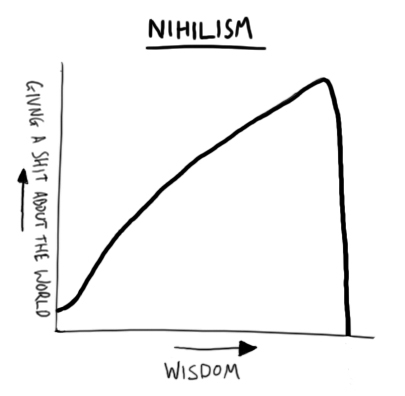When I was a kid I was at my next-door-neighbour’s house one day, where my best friend lived. I speculated that maybe I saw his house as the same way he saw mine, and vice versa. I mean, who knew for sure? From his viewpoint, the familiarity and comfort I envisioned at mine might be just the strange smells and sights I saw at his. Now, obviously this doesn’t quite work exactly because the layout and details are obviously different and we can tell that we are not actually looking at mirror images of each other’s homes. But, little did I know that I had struck on the tip of the philosophical Empathy Iceberg and all the fascinating questions it posed. It also confused the shingles out of my best mate, but we were only ten at the time I guess.
A much simpler, commonly cited example is colour. We have no real way of knowing whether red looks the same to you as it does to me, because we would still both call it ‘Red’. We attribute names to smells, but again, can’t really tell if the smell of fish is something that is the same for everyone. The subjectivity of our points of view is all-pervasive. As Obi Wan Kenobi once told a young, headstrong Luke Skywalker: “…many of the truths we cling to depend greatly on our own point of view”.
In the strictest terms, there is really nothing that is objective, because we cannot certify our own reliability. In essence, everything you think irrefutable could be false; such as the existence of mountains or the very images on your retina. But, to take this into account gets us nowhere; the definition is useless because there is no penalty for ignoring it, as were it correct there would be nothing we could do to know one way or the other. As all speculation of this nature is useless to our lives, we have every rational justification to proceed assuming that the basics hold true: I am really here, and my senses report the existence of things I experience, and that fundamental axioms of physics and mathematics are true.
And so we have Objectivity. That category of things that we can say are objectively true are called Facts. Facts are not things which we commonly agree on or percieve to hold true, though this may often be stated colloqially (eg. “its a fact that murder is wrong”). It is important to recognise the difference between things that are facts and things that are commonly accepted.
The universe is impartial. As such, thinking impartially is the only approach that can be useful in the aquisition of truth. Wishful thinking will get you nowhere. We are all tempted by it; the theory that almost fits, the romantic notion of human importance, an apparent need for some purpose. But wishful thinking is probably the most damaging influence that has ever acted on human understanding. It may be welcome in the realm of fantasy fiction, or the words of comfort to others, but it has no place in science.
Understanding one’s own point of view (and accepting its scope) is the first step towards an impartial outlook. As the old adage goes: “the first thing you must understand is how little you know”. And thinking without bias (or, to put it realistically, as little bias as is humanly possible) is the first step toward a greater understanding of the workings of the universe.





